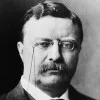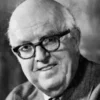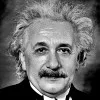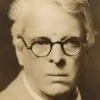Justice without strength, and strength without justice: fearful misfortunes!
[La justice sans force, et la force sans justice: malheurs aflreux!]
Joseph Joubert (1754-1824) French moralist, philosopher, essayist, poet
Pensées [Thoughts], ch. 15 “De la Liberté, de la Justice et des Lois [On Liberty, Justice, and Laws],” ¶ 18 (1850 ed.) [tr. Calvert (1866), ch. 12]
(Source)
Quotations about:
anarchy
Note not all quotations have been tagged, so Search may find additional quotes on this topic.
The others you know without my telling you. They are such fools that they seem to expect that, though the Republic is lost, their fish-ponds will be safe.
[Ceteros iam nosti; qui ita sunt stulti, ut amissa re publica piscinas suas fore salvas sperare videantur.]
Marcus Tullius Cicero (106-43 BC) Roman orator, statesman, philosopher
Epistulae ad Atticum [Letters to Atticus], Book 1, Letter 18, sec. 6 (1.18.6) (60 BC) [tr. Shuckburgh (1900)]
(Source)
(Source (Latin)). Alternate translation:The others you know well enough -- fools who seem to hope that their fish-ponds may be saved, though the country go to rack and ruin.
[tr. Winstedt (1912)]As for the rest of the Optimates, you know them. They are so stupid as to suppose that their own fishponds can be unharmed even though the constitution go to pot.
[tr. McKinlay (1926), # 13]The others you know. They seem fools enough to expect to keep their fish-ponds after losing constitutional freedom.
[tr. Shackleton Bailey (1968)]
The man who, if born to wealth and power, exploits and ruins his less fortunate brethren is at heart the same as the greedy and violent demagogue who excites those who have not property to plunder those who have.
Theodore Roosevelt (1858-1919) American politician, statesman, conservationist, writer, US President (1901-1909)
Speech (1910-04-23), “Citizenship in a Republic [The Man in the Arena],” Sorbonne, Paris
(Source)
I remember a man whom I knew when I was young, who was small, anaemic, and timid, but used to proclaim himself an anarchist. He never realised that his whole existence depended upon police protection, or that in a world without government he would be robbed of all his possessions and left to starve.
Bertrand Russell (1872-1970) English mathematician and philosopher
“Back to Nature?,” New York American (1934-04-30)
(Source)
When you think of the long and gloomy history of man, you will find that far more, and far more hideous, crimes have been committed in the name of obedience than have ever been committed in the name of rebellion.
C. P. Snow (1905-1980) English novelist, physical chemist, bureaucrat [Charles Percy Snow]
“The Moral Un-Neutrality of Science,” speech, American Association for the Advancement of Science, New York City (27 Dec 1960)
(Source)
Reprinted in Science (27 Jan 1961) and then in Public Affairs (1971).
My political opinions lean more and more to Anarchy (philosophically understood, meaning abolition of control not whiskered men with bombs). […] The most improper job of any man, even saints (who at any rate were at least unwilling to take it on), is bossing other men. Not one in a million is fit for it, and least of all those who seek the opportunity.
J.R.R. Tolkien (1892-1973) English writer, fabulist, philologist, academic [John Ronald Reuel Tolkien]
Letter to Christopher Tolkien (1943-11-29)
(Source)
Letter 52 in Humphrey Carpenter, ed., The Letters of J.R.R. Tolkien (1981).
I’ll have no dealings
With law-breakers, critics of the government:
Whoever is chosen to govern should be obeyed ––
Must be obeyed, in all things, great and small,
Just and unjust! O Haimon,
The man who knows how to obey, and that man only,
Knows how to give commands when the time comes.
You can depend on him, no matter how fast
The spears come: he’s a good soldier, he’ll stick it out.
Anarchy, anarchy! Show me a greater evil!
This is why cities tumble and the great houses rain down,
This is what scatters armies!
No, no: good lives are made so by discipline.
We keep the laws then, and the lawmakers.Sophocles (496-406 BC) Greek tragic playwright
Antigone, l. 665ff [Creon] (441 BC) [tr. Fitts/Fitzgerald (1939), l. 525ff]
(Source)
Alt. trans.:But whoso wantonly
Or strains the laws or sets about dictating
To those who rule, it is not possible
That such a one should ever earn my praise.
No! when a city constitutes a chief,
It well befitteth all men to obey
His great or small, just or unjust behests.
And I should confidently trust that he,
Whose law is such, would from fixed habitude
Both wisely rule and loyally obey.
he too, when posted in the battled line,
Amid the storm of fight, would keep his ground,
Brave and unswerving by his comrade's side.
There is no greater ill than disobedience.
'Tis this which ruins cities: this it is
Which works the downfall of a noble house.
And when, in battle, spear is locked with spear,
'Tis this again which breaks and routes the phalanx.
But when men keep the line, their discipline
For the most part ensures their safety. Thus,
It is our duty still to aid the laws.
[tr. Donaldson (1848)]But he who overbears the laws, or thinks
To overrule his rulers, such as one
I never will allow. Whome'er the State
Appoints must be obeyed in everything,
But small and great, just and unjust alike.
I warrant such a one in either case
Would shine, as King or subject; such a man
Would in the storm of battle stand his ground,
A comrade leal and true; but Anarchy --
What evils are not wrought by Anarchy!
She ruins States, and overthrows the home,
She dissipates and routs the embattled host;
While discipline preserves the ordered ranks.
Therefore we must maintain authority.
[tr. Campbell (1873)]But he that wantonly defies the law,
Or thinks to dictate to authority,
Shall have no praise from me. What power soe'er
The city hath ordained, must be obeyed
In little things and great things, right or wrong.
The man who so obeys, I have good hope
Will govern and be governed as he ought,
And in the storm of battle at my side
Will stand a faithful and a trusty comrade.
But what more fatal than the lapse of rule?
This ruins cities, this lays houses waste,
This joins with the assault of war to break
Full numbered armies into hopeless rout;
And in the unbroken host 'tis nought but rule
That keeps those many bodies from defeat,
I must be zealous to defend the law.
[tr. Storr (1859)]But if anyone oversteps and does violence to the laws, or thinks to dictate to those in power, such a one will never win praise from me. No, whomever the city may appoint, that man must be obeyed in matters small and great and in matters just and unjust. And I would feel confident that such a man would be a fine ruler no less than a good and willing subject, and that beneath a hail of spears he would stand his ground where posted, a loyal and brave comrade in the battle line. But there is no evil worse than disobedience. This destroys cities; this overturns homes; this breaks the ranks of allied spears into headlong rout. But the lives of men who prosper upright, of these obedience has saved the greatest part. Therefore we must defend those who respect order.
[tr. Jebb (1891)]But if any one transgresses, and does violence to the laws, or thinks to dictate to his rulers, such an on can win no praise from me. No, whomsoever the city may appoint, that man must be obeyed, in little things and great, in just things and unjust; and I should feel sure that one who thus obey would be a good ruler no less than a good subject, and in the storm of spears would stand his ground where he was set, loyal and dauntless at his comrade's side. But disobedience is the worst of evils. This it is that ruins cities; this makes homes desolate; by this, the ranks of allies are broken into headlong rout; but, of the lives whose course is fair, the greater part owes safety to obedience. Therefore we must support the cause of order.
[tr. Jebb (1917), l. 661ff]To transgress
Or twist the law to one’s own pleasure, presume
To order where one should obey, is sinful,
And I will have none of it.
He whom the State appoints must be obeyed
To the smallest matter, be it right -- or wrong.
And he that rules his household, without a doubt,
Will make the wisest king, or, for that matter,
The staunchest subject. He will be the man
You can depend on in the storm of war,
The faithfullest comrade in the day of battle.
There is no more deadly peril than disobedience;
States are devoured by it, homes laid in ruins,
Armies defeated, victory turned to rout.
While simple obedience saves the lives of hundreds
Of honest folk. Therefore, I hold to the law,
And will never betray it.
[tr. Watling (1947), l. 559ff]But whoever steps out of line, violates the laws
or presumes to hand out orders to his superiors,
he'll win no praise from me. But that man
the city places in authority, his orders
must be obeyed, large and small,
right and wrong. Anarchy --
show me a greater crime in all the earth!
She, she destroys cities, rips up houses,
breaks the ranks of spearmen into headlong rout.
But the ones who last it out, the great mass of them
owe their lives to discipline. Therefore
we must defend the men who live by law.
[tr. Fagles (1982), l. 741ff]So, if someone goes too far and breaks the law,
Or tries to tell his masters what to do,
He will have nothing but contempt from me.
But when a city takes a leader, you must obey,
Whether his commands are trivial, or right, or wrong.
But reject one man ruling another, and that's the worst.
Anarchy tears up a city, divides a home,
Defeats an alliance of spears.
But when people stay in line and obey,
Their lives and everything else are safe.
For this reason, order must be maintained.
[tr. Woodruff (2001), l. 662ff]He who violates the laws of the gods and his city, or wants to command its leaders, will never gain my respect. We must obey those whom the city has ordained to be its leaders. We should obey them, unquestioningly, in all things, minor or great, those we agree with and those we oppose. I believe such a man would govern well and he’d also be an obedient servant; and he’d stay at his post even in the hurricane of war, honourably, bravely defending his country. There’s no worse evil than anarchy. Anarchy destroys nations, my son. Anarchy destroys homes. Anarchy turns the spears of allies into fleeing cowards. Those men left standing, the survivors, have been saved by discipline. That’s why each man must protect, with all his might, law and order.
[tr. Theodoridis (2004)]But anyone who’s proud
and violates our laws or thinks he’ll tell
our leaders what to do, a man like that
wins no praise from me. No. We must obey
whatever man the city puts in charge,
no matter what the issue -- great or small,
just or unjust. For there’s no greater evil
than a lack of leadership. That destroys
whole cities, turns households into ruins,
and in war makes soldiers break and run away.
When men succeed, what keeps their lives secure
in almost every case is their obedience.
That’s why they must support those in control.
[tr. Johnston (2005), l. 757ff ]
Might was the measure of right.
[Mensuraque juris / Vis erat.]
Lucan (AD 39-65) Roman poet [Marcus Annaeus Lucanus]
Pharsalia, 1.175
(Source)
Referring to earlier eras of anarchy.
No man was ever more than about nine meals away from crime or suicide.
Eric Sevareid (1912-1992) American journalist [Arnold Eric Sevareid]
“A New Kind of Leadership,” speech, Conference on Vision Care, Washington, DC (26 Apr 1974)
For more discussion of this and other closely parallel quotations, see: There Are Only Nine Meals Between Mankind and Anarchy – Quote Investigator.
If there be, in any region of the universe, an order of moral agents living in society, whose reason is strong, whose passions and inclinations are moderate, and whose dispositions are turned to virtue, to such an order of happy beings, legislation, administration, and police, with the endlessly various and complicated apparatus of politics, must be in a great measure superfluous.
James Burgh (1714-1775) British politician and writer
Political Disquisitions, Book 1 “Of Government, briefly,” ch. 1 “Government by Laws and Sanctions, why necessary” (1774)
(Source)
The Bill of Rights is not a suicide pact.
Robert H. Jackson (1892-1954) US Supreme Court Justice (1941-54), lawyer, jurist, politician
Terminiello v. City of Chicago, 337 U.S. 37 (1949) [dissenting]
(Source)
Common paraphrase of Jackson's actual comment:This Court has gone far toward accepting the doctrine that civil liberty means the removal of all restraints from these crowds, and that all local attempts to maintain order are impairments of the liberty of the citizen. The choice is not between order and liberty. It is between liberty with order and anarchy without either. There is danger that, if the Court does not temper its doctrinaire logic with a little practical wisdom, it will convert the constitutional Bill of Rights into a suicide pact.
Society in every state is a blessing, but Government, even in its best state, is but a necessary evil; in its worst state an intolerable one: for when we suffer, or are exposed to the same miseries by a Government, which we might expect in a country without Government, our calamity is heightened by reflecting that we furnish the means by which we suffer.
Thomas Paine (1737-1809) American political philosopher and writer
Common Sense, “On the Origin and Design of Government in General” (14 Feb 1776)
(Source)
Any government is in itself an evil insofar as it carries within it the tendency to deteriorate into tyranny. However, except for a very small number of anarchists, everyone of us is convinced that civilized society cannot exist without a government.
Albert Einstein (1879-1955) German-American physicist
“A Reply to the Soviet Scientists” (Dec 1947), Bulletin of Atomic Scientists (Feb 1948)
(Source)
All government is an ugly necessity.
Gilbert Keith Chesterton (1874-1936) English journalist and writer
A Short History of England, ch. 8 (1917)
(Source)
And what is this liberty which must lie in the hearts of men and women? It is not the ruthless, the unbridled will; it is not freedom to do as one likes. That is the denial of liberty, and leads straight to its overthrow. A society in which men recognize no check upon their freedom soon becomes a society where freedom is the possession of only a savage few; as we have learned to our sorrow.
Learned Hand (1872-1961) American jurist
“The Spirit of Liberty,” speech, “I Am an American Day,” New York (1941-05-21)
(Source)
Whatsoever therefore is consequent to a time of Warre, where every man is Enemy to every man; the same is consequent to the time, wherein men live without other security, than what their own strength, and their own invention shall furnish them withall. In such condition, there is no place for Industry; because the fruit thereof is uncertain; and consequently no Culture of the Earth; no Navigation, nor use of the commodities that may be imported by Sea; no commodious Building; no Instruments of moving, and removing such things as require much force; no Knowledge of the face of the Earth; no account of Time; no Arts; no Letters; no Society; and which is worst of all, continuall feare, and danger of violent death; And the life of man, solitary, poore, nasty, brutish, and short.
I would rather be exposed to the inconveniencies attending too much liberty than those attending too small a degree of it.
Thomas Jefferson (1743-1826) American political philosopher, polymath, statesman, US President (1801-09)
Letter (1791-12-23) to Archibald Stuart
(Source)
Jefferson originally wrote "dangers" instead of "inconveniencies."
A majority held in restraint by constitutional checks and limitations, and always changing easily with deliberate changes of popular opinions and sentiments, is the only true sovereign of a free people. Whoever rejects it does of necessity fly to anarchy or to despotism.
Abraham Lincoln (1809-1865) American lawyer, politician, US President (1861-65)
Speech (1861-03-04), Inaugural Address, Washington, D. C.
(Source)
Turning and turning in the widening gyre
The falcon cannot hear the falconer;
Things fall apart; the centre cannot hold;
Mere anarchy is loosed upon the world,
The blood-dimmed tide is loosed, and everywhere
The ceremony of innocence is drowned;
The best lack all conviction, while the worst
Are full of passionate intensity.William Butler Yeats (1865-1939) Irish poet and dramatist
“The Second Coming,” ll.1-8 (1920)
(Source)
More examination of this quotation: The Best Lack All Conviction While the Worst Are Full of Passionate Intensity – Quote Investigator. See also Russell and Bukowski.




















